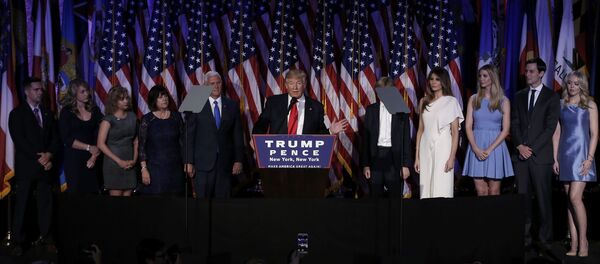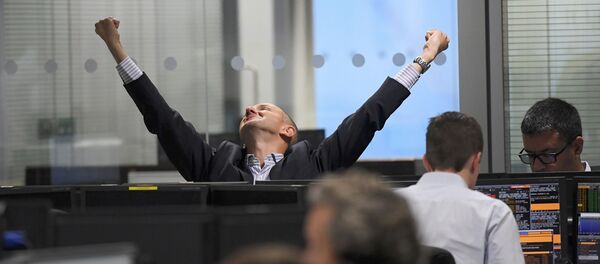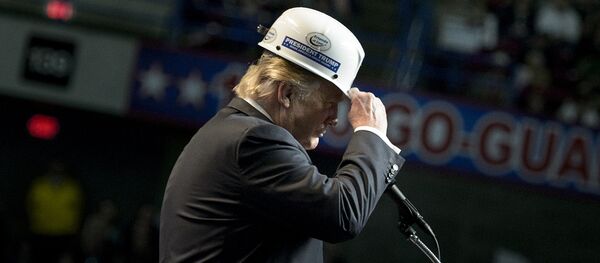The new President is empowered to implement his reform agenda almost unopposed, the notion that rendered financial markets across the world fleeing for safety of fixed-income and gold, dropping equities, currencies and other liquid and risky assets. ‘Uncertainty’ is cited as main reason behind the market tumult, the biggest since June24, the day after the UK decided to separate from the European Union.
However, how much ‘uncertainty’ does the economic agenda of Trump and his team actually pose? Even though a few hours after Trump's win was announced the market turmoil eased somewhat, Wall Street has seen carnage in the stock market, with major indices dropping by as much as 5pc, and futures trading hitting rock bottom. The US dollar depreciated against the basket of its major peers, and the overall market dynamics have thus far been mirroring the post-Brexit immediate developments.
“Once the baton is passed to politics, this is a prime example of how volatile markets can be," Bret Barker of TCW Group Inc. said.
This happened mainly due to market participants being overtly confident of the Democrat candidate winning, especially after the FBI eased its inquisitive pressure on the Clinton camp on Monday. The markets surged subsequently, with the New York Times putting a 90pc chance of Clinton win. What was perceived as a ‘relief rally’ became deadly for stock valuations and a selection of currencies, particularly, the Mexican peso, upon Trump’s electoral triumph.
All these measures, indeed, are expected to propel the US GDP growth higher in the short-term. That means, there might be a proper buying opportunity in the financial markets at this point – the question is, when the across-the-board rally will commence, as Trump will not be sworn in as President until January, and his reforms will gradually start kicking in within the first 100 days of his presidency.
“It’s similar to Brexit, we’re seeing a lot of short-term positions being cut in a kind of panic,” Jesper Bargmann of the Singapore branch of Nordea Bank AB said. “I’d say that liquidity in the major currencies has been a little bit better and moves have been bit more orderly this time round.”
Second, energy production. Trump has repeatedly reiterated during his multiple rallies across the country, that his administration would “put miners back to work” through deregulation, allowing to boost output of oil, natural gas and coal. All this would depress global energy prices, but provide a solid boost to US manufacturing as industrial production costs would decline. A pickup in economic activity might compensate for the drop in energy prices, but indeed, it is unknown how international markets will react. The world’s biggest energy producers might be in for tough times.
Third, trade. Historically, customs tariffs seem to be a great idea, for instance, in 1850, the lion’s share of the US budget revenues came from customs tariffs rather than internal taxation. Yet, the prospect of ‘trade wars’ might rock the already-battered infrastructure of international trade. America’s self-sustainability might be a slightly more distant goal than the Trump administration may now see it, yet, herein lies yet another major ‘uncertainty’ that concerns market participants today.
“If you’re a trader, you hedged your bets,” Quincy Krosby of the Newark, NJ-based Prudential Financial Inc. said. “You didn’t go into this expecting a clean sweep for Democrats.” They did.
There are risks, and there is uncertainty. Yet, regardless of whether there could be another way (not really), the short-term outlook on the ‘shock treatment’ of the economy will be prevalent throughout the rest of Q4 2016 and into early next year.
“We have to look past the short-term volatility,” Bruce Bittles of the Milwaukee, WI-based Robert W. Baird said. “After the election, investors will be focusing on the Fed and what they’re going to do in December.”








